Issue 124 : 12 March 2023
Talofa Lava, Kia Orana, Malo E Leilei, Tena Koutou, Hello ...
... and welcome to the latest issue of “For The Love Of The Game”, the official e-zine of the New Zealand Amateur Sport Association Inc., founded in Wellington, New Zealand in 2017.
If you have any feedback on this issue, ideas for future articles, or would like to contact the Editor, please click here. And, you are invited to forward the e-zine to others you know, who may be interested in reading it. An archive of earlier editions of the e-zine can be found here.
For those who follow Twitter, you can also follow the Association, @AmateurSportNZ. If you are interested in applying for membership of the Association, please click here.
Companies Office Offers Compliance Relief ...
In discussion with the Association, the Companies Office identified that a number of incorporated community sport clubs (ICSOs) in the Auckland, Coromandel, East Coast, Northland, Hawkes Bay and Poverty Bay regions have been severely affected by recent weather events. In some cases, this may mean that an ICSO’s Annual General Meeting, (to meet Incorporated Societies Act 1908 compliance obligations), has had to be deferred.

(A two month compliance extension is available to flood-affected ICSOs)
Any ICSO in these regions, with an annual financial statement filing date which is due in the immediate future may apply on-line for an extension in order to meet their annual filing obligations. If it’s the first time the ISCO has applied for an extension, the request will be approved automatically and the deadline will be extended by at least two months. To apply for an extension on-line, please refer to the details provided at societies.govt.nz, or click here.

(All ICSOs are obligated to file an annual return with the Registrar)
Our Submission On New Zealand Rugby’s Governance ...
In our response to the invitation to submit on the review being undertaken by New Zealand Rugby in respect of its governance framework, the Association noted that the annual National Sport Club Survey shows that nearly half (44%) of sport club board/committee membership across all sporting codes is female, however only a small proportion (8%) of sport club board/committee members (male or female) are under the age of 30 years.

(Only 8% of sport club committee members are aged under 30 years)
We suggested that New Zealand Rugby may wish to consider increasing the governance representation of younger people who have the required knowledge, competence and skills, to contribute to the development and monitoring of rugby union's strategy, to ensure the future of the game for the next generation.

(One-third of sport club committee members have been in their role for 5 plus years)
We also noted that the National Sport Club Survey reveals that around one-third (27%) of board/committee members (across all sporting codes) have been in their role for 5 or more years, (in the case of cricket, 66%). While continuity of service is an asset for all ICSOs, we suggested there is also the need for the sport of rugby union to be open to new ideas reflecting the contemporary social needs of stakeholders.
Christchurch Hosts National Surf Life Saving Championships …
More than 1,200 Surf Life Saving New Zealand (SLSNZ) members representing 45 clubs from around the country took part in this year’s TSB New Zealand Surf Lifesaving Championships on Christchurch’s New Brighton beach, which concluded today.
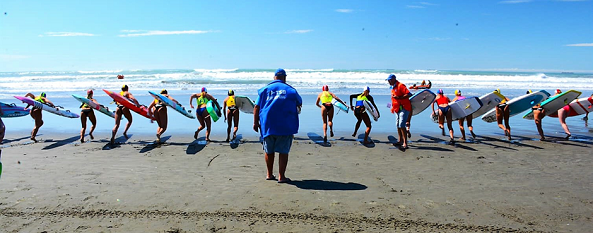
(New Brighton beach hosted the championships for the first time since 2017)
The "TSB New Zealand Surf Lifesaving Championships" are the pinnacle sports event for Surf Lifeguards and celebrate the best of the Surf Life Saving movement. Lewis McClintock, SLSNZ’s National Sports Manager, noted that “with a state of national emergency covering many regions following Cyclone Gabrielle, there was some doubt as to whether the national championship could take place. However, given that our people have been training all summer for this event, the decision to go ahead was very much supported by SLSNZ Clubs.”
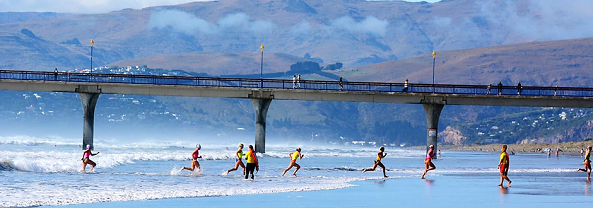
(45 clubs from across the country competed in the 2023 national championships)
Bay of Plenty's Mount Manunganui SLSC ended the championships with the most points of the 45 clubs which competed, the only club to score over 100 points in total, winning 74 events and earning 47 medals overall. East End SLSC (New Plymouth) was national runner-up.
Registrar’s Update : Incorporated Societies Act 2022 ...
The Incorporated Societies Act 2022 comes into force on 5 October 2023. A new community sport organisation incorporating for the first time before 5 October 2023, will be required to register under the 1908 Act; from that date, it will be required to register under the 2022 Act. Any existing ICSO registered under the 1908 Act remains subject to the rules in that Act, until it re-registers under the new Act, (which can be no later than April 2026).
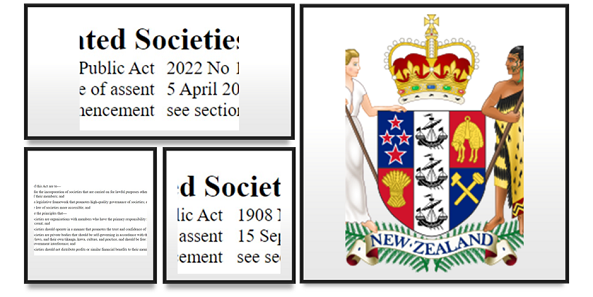
(The new Incorporated Societies Act comes into full effect on 5 October 2023)
A reminder that ICSOs that are registered charities are subject to most of the same legislative changes as those that aren’t. Being a registered charity is not enough to give an ICSO its own legal personality, (i.e. the right to sign contracts, sue and be sued, etc.). Only being registered as an incorporated society, a company, a charitable trust (or other similar entity) does.
“McEvedy Shield” A Reminder Of Sport’s Noble Purpose ...
The “McEvedy Shield” was presented by Dr. Patrick Francis McEvedy (a Wellington physician and well-known New Zealand sportsman) to the Wellington Secondary Schools’ Athletics Association in November 1922, for awarding to the school which scored the most points in all events at the annual inter-collegiate athletics meeting held in the Wellington region, the first of which took place at the Basin Reserve that year. By the tenth competition for the Shield in 1931, nine secondary schools were competing annually for shield honours, (compared to the “big four” which have tussled for the title in recent years).
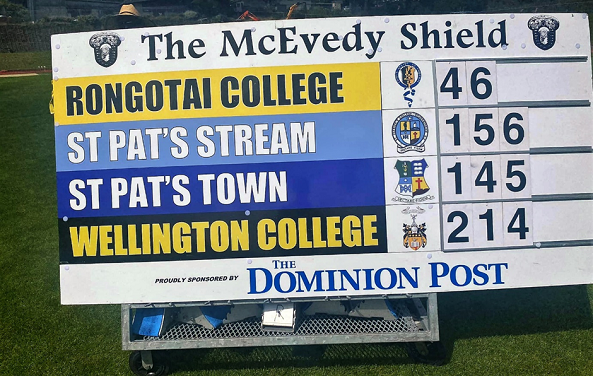
(Wellington College won the first and 100th competitions for the McEvedy Shield)
McEvedy was a St. Patrick’s College Wellington Old-Boy, with his alma mater only winning the Shield for the first time in 1945. While not without its controversy over the past century, the competition for the McEvedy Shield has been one of the most keenly contested amateur sporting trophies among Wellington youth athletes, with preparation from some schools commencing up to four months ahead of the event. For the record, Wellington College won both the first title in 1922, and also the 100th competition for the Shield which was held last week on 7 March at Wellington’s Newtown Park.
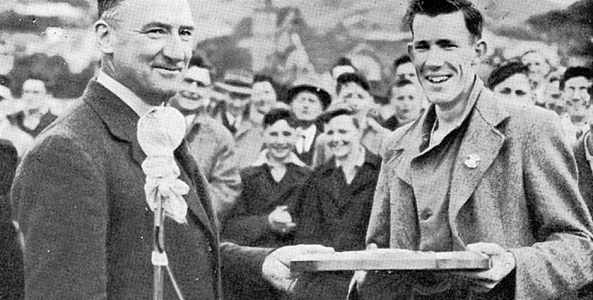
(McEvedy’s alma mater first won the Shield on its 24th attempt in 1945)
Viewpoint : Why Violent Gestures In Sport Are Unwelcome ...
In 1997, Paul Farrugia wrote in the Auckland University Law Review, “it is generally accepted that society tolerates rough and potentially injurious contact sports because of the benefits it derives from sporting endeavour.” He continued, “in doing so, conduct that [otherwise] constitutes criminal assault are condoned, and the participants’ consent is deemed to be effective”. However, Farrugia also notes that there is difficulty, “in devising a formula that both accommodates society’s desire for competitive contact sport, and serves to protect participants from wanton violence”.

(Sport's laws must protect participants from the risk of wanton violence)
In many cases, sporting codes have defined what is considered to be acceptable conduct. For example, World Rugby in its Charter stipulates that “it is perfectly acceptable … to be seen to be exerting extreme physical pressure on an opponent in an attempt to gain possession of the ball, but not wilfully or maliciously to inflict injury.” The intent of an act which might otherwise be deemed to be lawful in the context of the rules of a game, can therefore become the determinant of whether or not the act itself breached a participant’s consent to be exposed to it.
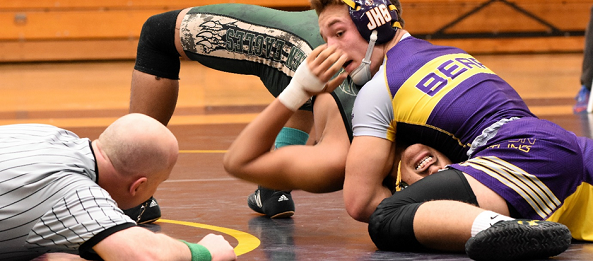
(Match officials are key to ensuring sporting contests remain safe for all)
Match officials of contact sports are required to perform this crtical test repeatedly, generally monitoring the behaviour and attitude of participants for signs of wilful behaviour with the potential to result in injury to an opponent. “Red flags” might be the use of provocative language or gestures, scuffles unrelated to play, or incitement from the side-lines. All of these signs have the potential to escalate to a point where “consent to participate” may no longer be a valid defence for a participant whose wilful actions result in injury to an opponent.
It is therefore incumbent on sport administrators, spectators and participants to remain vigilant (and respond appropriately) to any acts which may have the consequence of changing the nature of a sporting contest from one of physical pressure, to one of wanton violence.
From The Archives ...
SPORTING
EVENING STAR, ISSUE 14486, 10 FEBRUARY 1911, PAGE 1
A SOCCER CHAMPION FAREWELLED
“All local footballers, as well as cricketers, know how much good influence has been contributed to sport generally, and to Association football in particular, by that veteran Monty Chadwick, of the Northern Football Club, who was farewelled by old and young members last night.”
“Away from football, Mr R. M. Chadwick is quite young, but he has been a leader in soccer for so long that everybody calls him a veteran. It is more than probable that no Association footballer in the Dominion has had a similar record as a successful and respected player. “Monty” saw the Northern Club rise from dufferdom to the first place and took a prominent part in seven successful finals - a splendid record. He was “the Iron Duke” in Association football circles and represented the province here and the Dominion in Sydney against New South Wales.”
Robert Joseph Montague (known as “Monty”) Chadwick was born in Dunedin on 26 October 1879, the son of John Robert (a contractor) and Mary Ann Chadwick, who emigrated from Australia to New Zealand in 1875. The family lived at 28 Carlyle Street in Dunedin’s north-east valley. Robert attended the Dunedin School of Art & Design. In 1903, he passed the honours examination of City and Guilds of London Institute in mechanical engineering and designing, the first New Zealander to do so.
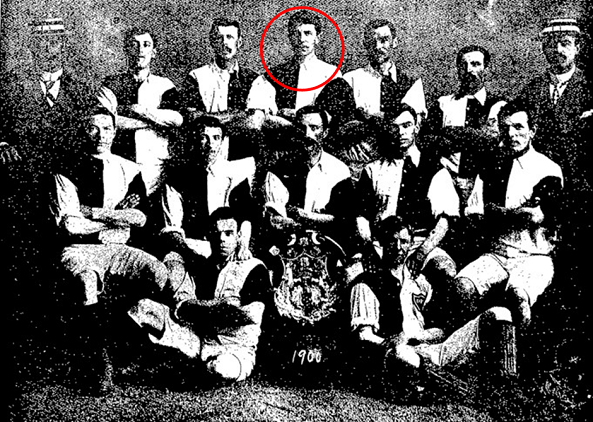
(Winners of the Otago Championship Shield in 1900, with Monty Chadwick circled)
In the early 1900’s he played for the Opoho, Dunedin and Carisbrook cricket clubs as a right-hand fast-medium bowler, representing Otago in 1905 against a visiting Australian team. A member and Vice-Captain of the Northern Football Club (of which he was a committee member), he became an Otago representative in the province’s Brown Shield team, represented New Zealand against Australia in 1906 and later a selector and a referee for the Otago Football Association. In 1915 he became a Vice-President of the New Zealand Football Association.
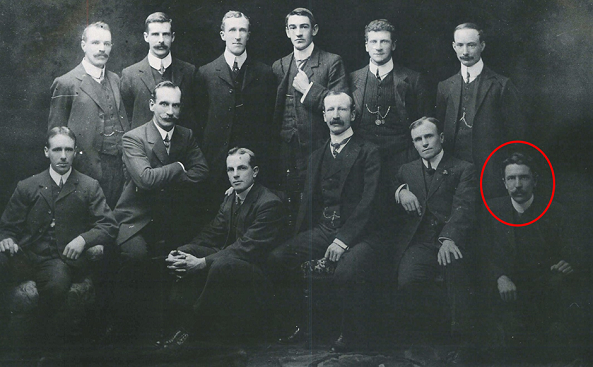
(The Carisbrook Cricket Club “B” Team (1909-10), with Monty Chadwick, circled)
Monty married Agnes Miller McNair (the seventh daughter of Hugh McNair) in Dunedin in 1907, with whom he had two sons, Robert and Montague. In 1911, Monty and his family moved to Napier. He joined the United Cricket Club there and was selected to represent Hawkes Bay in the 1913/1914 season. In the 1920s, he became President of the Hawkes Bay Cricket Association and a committee member of the Hawkes Bay Football Association. His son Robert also represented Hawkes Bay at cricket in the 1930’s.
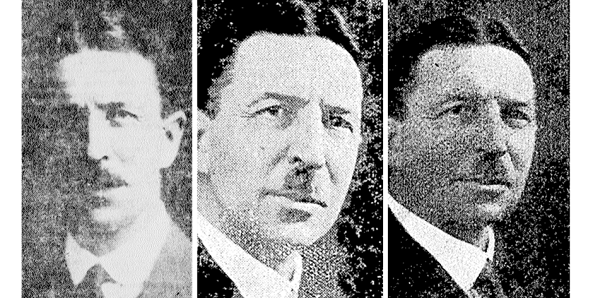
(Monty Chadwick, the “Iron Duke” of Association Football in Dunedin)
While watching his son Hawden (a champion New Zealand high-jumper) compete in the national Athletic Championships in Auckland in February 1939, Monty Chadwick suddenly took ill and he died in Napier on 11 March 1939 at the age of 59. He is buried in Napier’s Park Island cemetery.
The Final Word …
“Daring ideas are like chessmen moved forward; they may be beaten, but they may start a winning game.”
(Johann Wolfgang von Goethe)